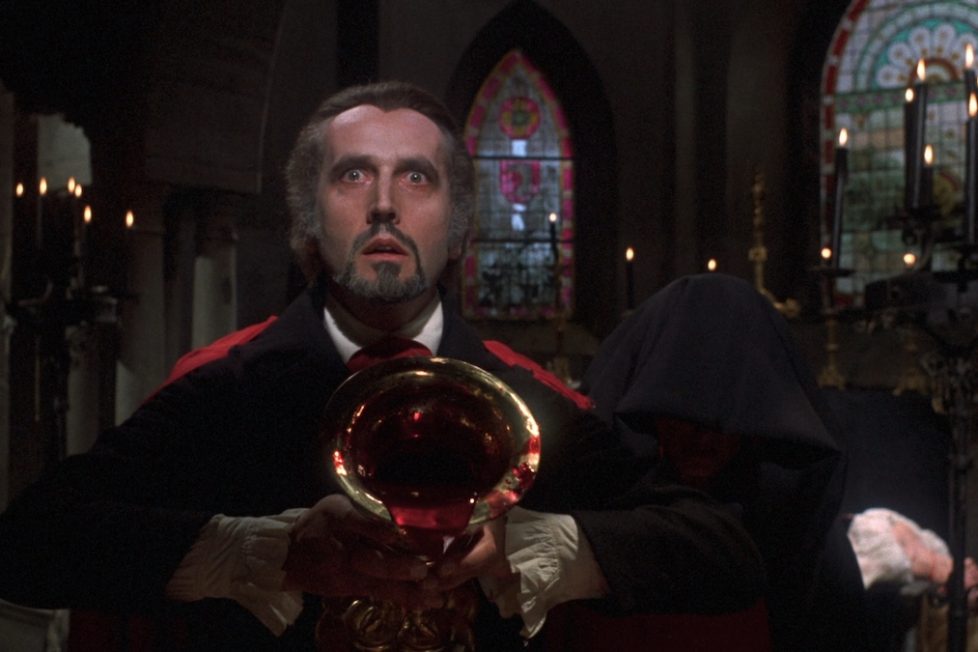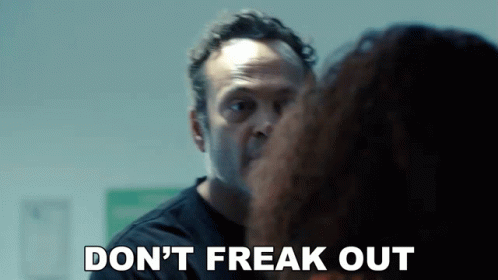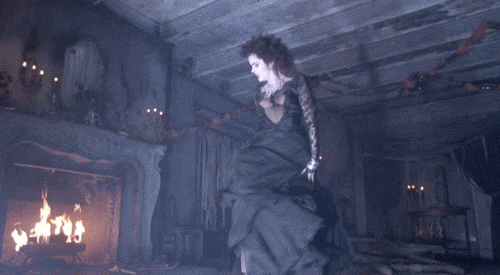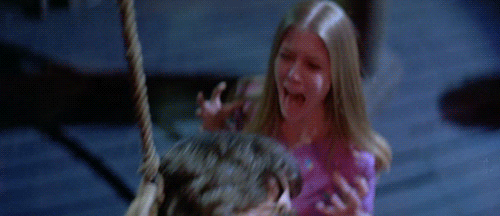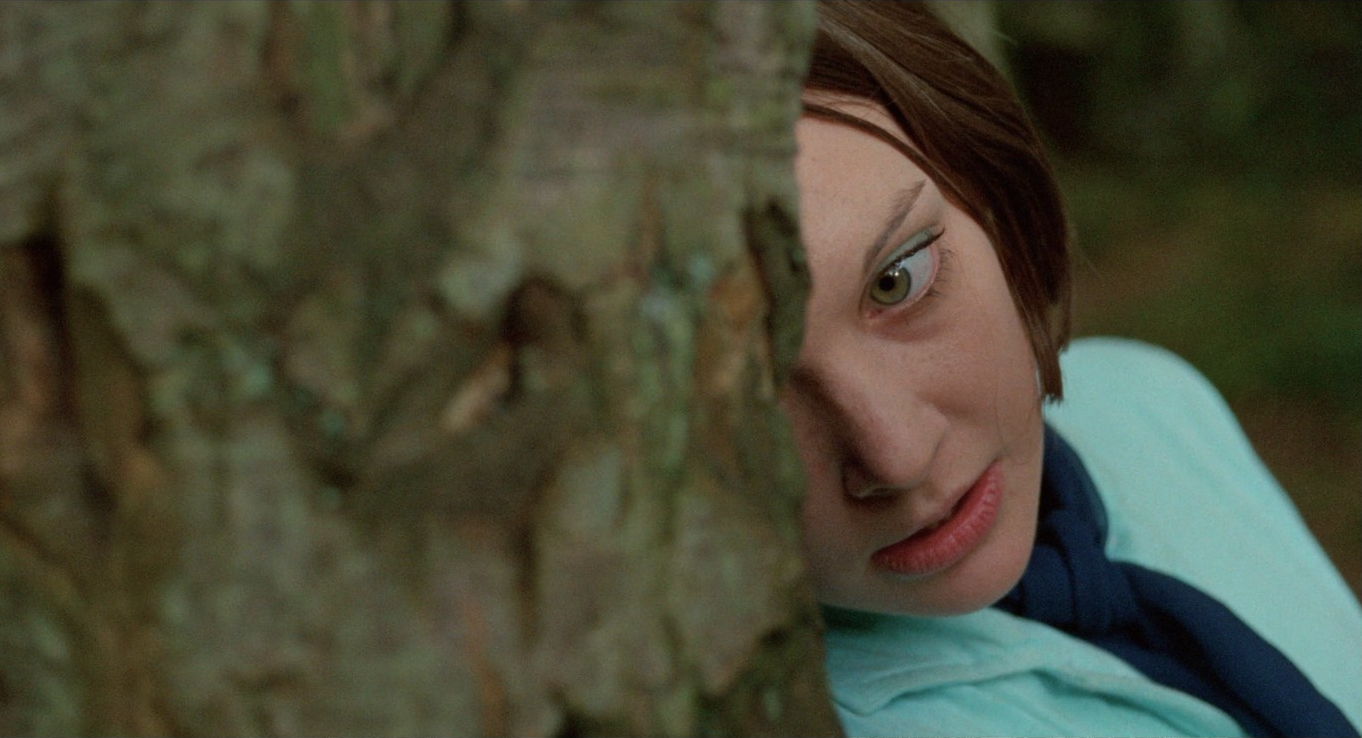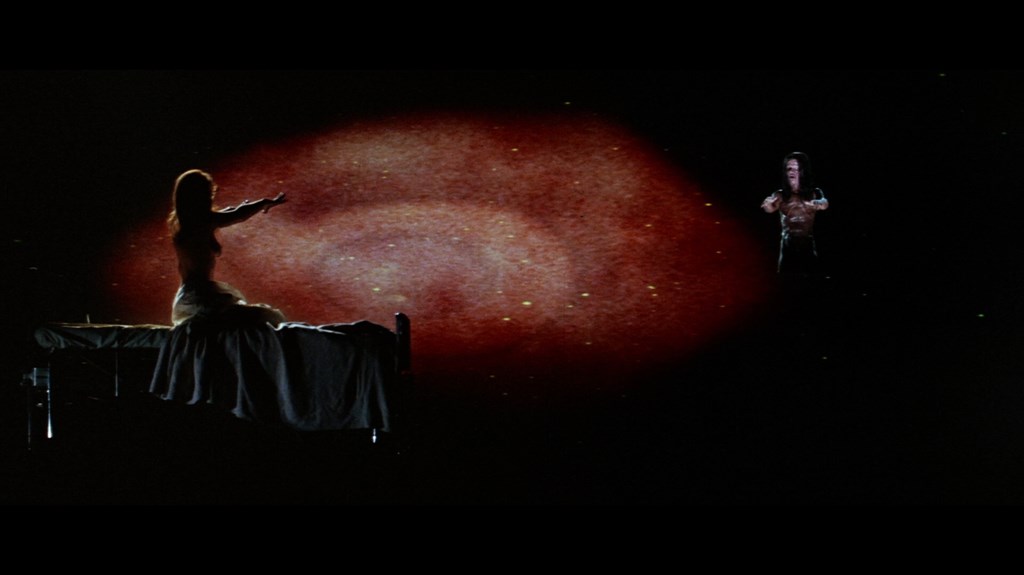They ain't 'fraid of no ghosts...
32.)
The Legend Of Hell House (1973): 8/10
33.)
Oculus (2013): 8.5/10

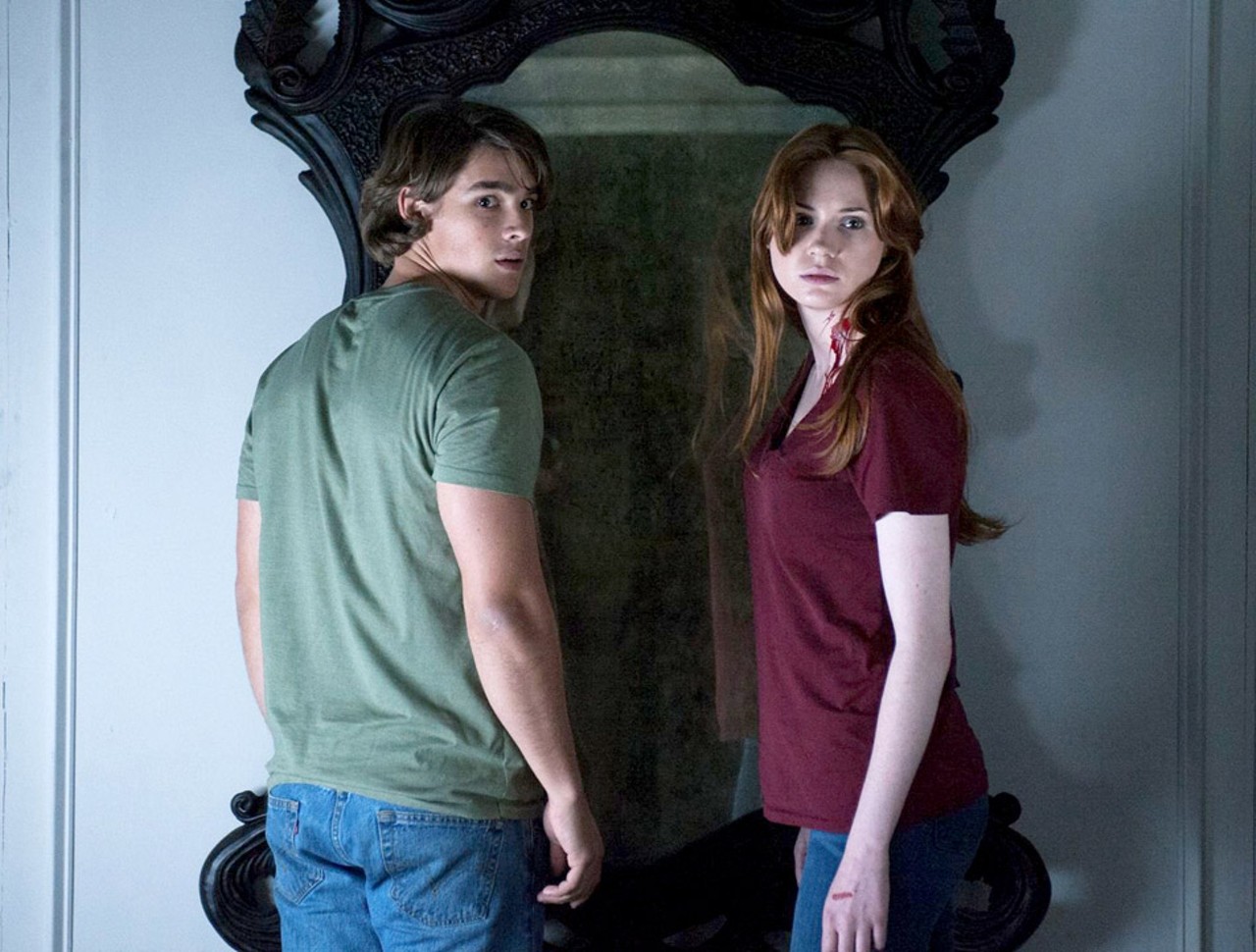
It's science vs. spooks in today's pair of chillers.
The Legend Of Hell House concerns a quartet of paranormal researchers tasked with "The Mt. Everest of haunted houses", the Belasco House, a remote, crumbling abode that, in its fifty year history, has been host to a rash of disturbances, leading not one but two previous attempts to investigate its spectral mysteries left in madness and tragic deaths for (almost) all involved. This time around, it's down to scientists Dr. Lionel Barrett (Clive Revill) and his wife Ann (Gayle Hunnicutt), and a pair of mental mediums, Florence Tanner (Pamela Franklin, who played young Flora in the classic
The Innocents and who resembles a green-eyed Winona Ryder) and Benjamin Franklin Fischer (Roddy McDowell), the sole survivor of the last attempt to plumb the Belasco House's depths of psychic disturbances. Armed with foreknowledge of the fates of their predecessors, the four dig into the house's history, the restless spirits lurking within, and, with the assistance of Dr. Barrett's "Reversor machine", hope to purge the build-up of ominous energy that has been building up in the house for a half-century and render it inert.
Adapted from his superb novel
Hell House by screenwriter Richard Matheson and skillfully directed by British filmmaker John Hough,
The Legend Of Hell House is a movie that almost looks forward to Sam Raimi's
Evil Dead pictures, suggesting the presence of hovering spirits and specters with excellent use of claustrophobic, wide-angle closeups and sinuous camera moves (albeit minus the splatterific gore of Raimi's movies, this is a "70s PG" production all around, lacking the harder, more lurid edges of Matheson's novel). The four leads also add to the chill with committed performances, especially a terrific McDowell, who nearly lost his life and sanity to the house two decades before and is looking for a rematch to settle old scores. It's not quite an all-time classic, but it's a crisp, efficient chiller nonetheless.
Oculus concerns an idea that sounds like the dumbest short-story concept ever cooked up by Stephen King, a haunted mirror called the Lasser Glass, handed down from owner to owner over the course of over 400 years, all of whom succumbed to its malign influence and met gristly deaths. The most recent victims are Alan and Marie Russell (Rory Cochrane and Katee Sackhoff), the former induced into murdering the latter, leaving their children, Kaylie and Tim (played as children by the excellent Annalise Basso and Garrett Ryan Ewald) orphaned. Eleven years later, the two (now played by Karen Gillan and Brenton Thwaites) have reconvened at their childhood home, with the Lasser Glass in tow, and with Kaylie determined to use a rigorously logical system to keep the mirror's influence from clouding and poisoning their minds the way it did to their parents, and to get it all down on recordings the mirror's sordid history and the means she'll use to destroy it.
The first major film from director Mike Flanagan (who co-wrote it with Jeff Howard based on his short film
Oculus - Chapter 3: The Man With The Plan),
Oculus is a movie that blends past and present with dizzying skill, leaving the characters -- and audience -- in a constant state of time-shifting unease. Like quicksand, the mirror's influence keeps undermining Kaylie's attempts to keep one step ahead (and a lot of her techniques to stave off madness are well-researched and plausible) and sucking the two of them deeper into the recesses of their own past, as they question whether what they can see is either live, or Memorex. Both the adult and child version of the characters deliver convincingly frightened and disoriented performances, and Flanagan keeps the screws tight and springs one surprise after another on the viewer. It's a beaut of a thriller, one that generates true shivers for even the most seasoned fright flick fan, and it was a great indicator of the incredibly impressive career for the gifted Flanagan that would follow.


